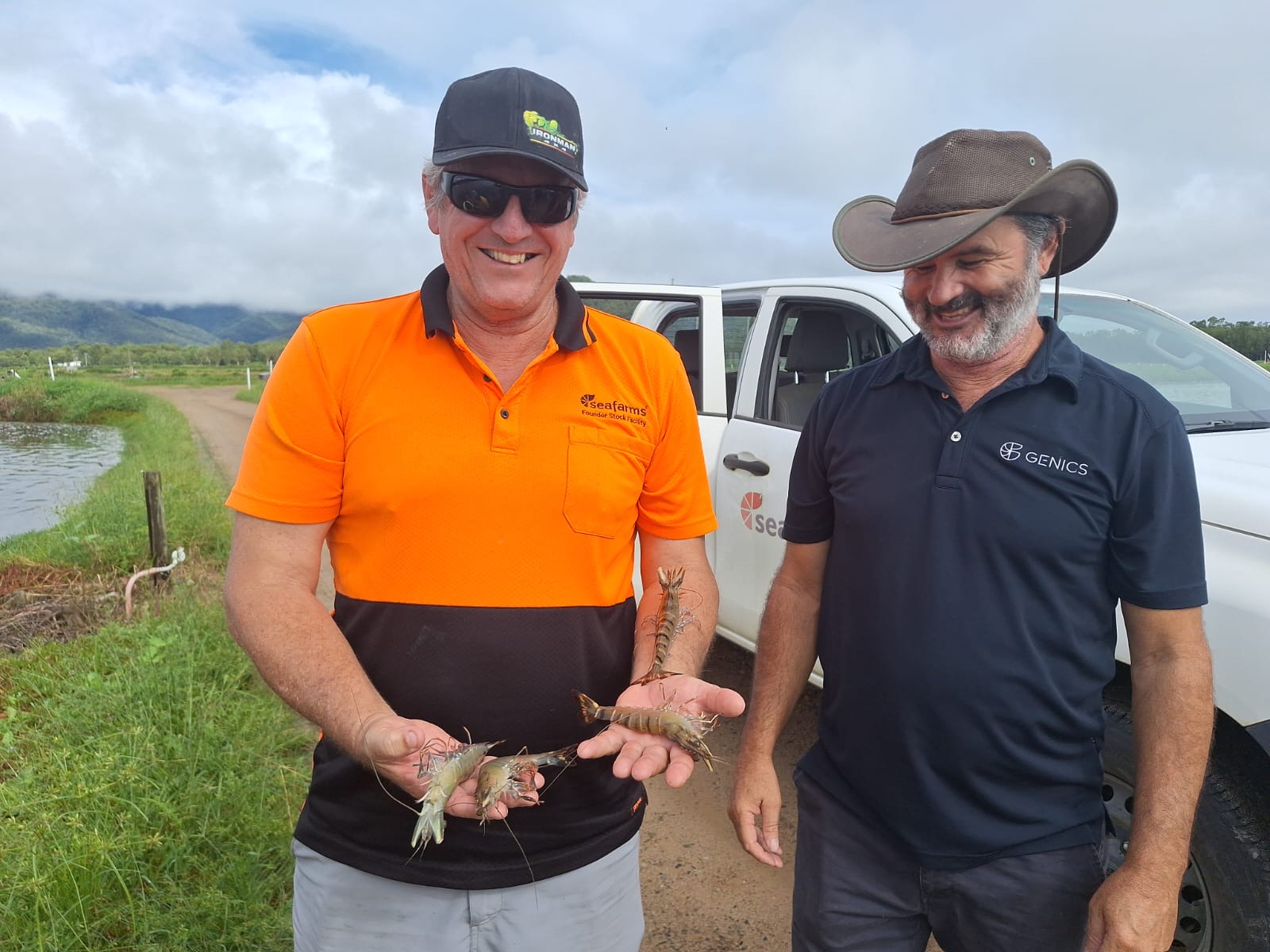Australia based Genics, a leader in aquatic pathogen detection and genetic analysis spotlighted new research, which demonstrates the potential of Brazilian black tiger shrimp (Penaeus monodon) as a robust alternative to Pacific white-leg shrimp (Litopenaeus vannamei) in aquaculture systems.
Black tiger shrimp is believed to have been inadvertently introduced within the ballast of cargo ships which resulted in the establishment of the species in the north of Brazil. Once the wild population of P. monodon is established in Brazil, its domestication can promote positive implications for the sustainability by reducing reliance on wild stocks, diversifying production systems, providing higher market prices for pro-
ducers, and reducing losses from disease.
The study, conducted in collaboration with researchers at the Crustaceans Diseases Diagnostic Laboratory, Agrarian Science, State University of Maranhão (UEMA), São Luis, Maranhão and Marine Aquacrusta Ltd. & Flavors of the Coast, Acaraú, Ceará, Brazil with CSIRO, Agriculture and Food, Livestock and Aquaculture, Brisbane, Queensland and Genics, Brisbane, Queensland, Australia assessed the pathogen load and genetic diversity of a domesticated population of black tiger shrimp from Ceará, Brazil, across 10 generations. Pathogen screening of 96 shrimp using molecular diagnostics and histopathology revealed no significant pathogens, establishing the population as a
potential foundation for a specific pathogen-free (SPF) breeding program.
Dr. Melony Sellars, CEO of Genics, said,
“This is a pivotal finding for the Brazilian shrimp farming sector. By demonstrating that local black tiger shrimp populations are pathogen-free and genetically diverse, we’re providing the industry with the tools to enhance resilience, reduce disease risk, and foster sustainable production systems.”
Genetic analysis using SNP markers showed a low inbreeding coefficient of 0.03, comparable to international populations in Vietnam and Australia.
The findings suggest that the Brazilian broodstock is well-positioned to serve as the foundation for a structured breeding program focused on disease resilience and sustainable growth.
Sellars added,
“Pathogen-free, genetically diverse populations are essential for aquaculture sustainability. This research not only provides a blueprint for the Brazilian shrimp industry but also demonstrates the potential for local breeding programs to reduce reliance on imported stocks and mitigate the spread of infectious diseases.”
 The study also highlighted the importance of comprehensive pathogen screening and genetic analysis as critical components of aquaculture management. Genics’ ShrimpID P. monodon service leverages high-density SNP markers to accurately assess genetic diversity and trace lineage, providing shrimp farmers with vital insights to inform breeding programs and optimize stock performance — further supporting Genics’ mission to advance biosecurity and food security globally.
The study also highlighted the importance of comprehensive pathogen screening and genetic analysis as critical components of aquaculture management. Genics’ ShrimpID P. monodon service leverages high-density SNP markers to accurately assess genetic diversity and trace lineage, providing shrimp farmers with vital insights to inform breeding programs and optimize stock performance — further supporting Genics’ mission to advance biosecurity and food security globally.
More details on the study: Pathogen Screening and Genetic Analysis of Brazilian Black
Tiger Shrimp (Penaeus monodon) Populations for Enhancing Aquaculture Stocks By Thales Passos de Andrade , Amanda Rafaela Cunha Gomes,
Francisco Rodrigues Norberto Junior, James Kijas , Melony Sellars , and
Jeremy Brawner. Aquaculture Research
Volume 2025, Article ID 9086659, 12 pages
https://doi.org/10.1155/are/9086659




